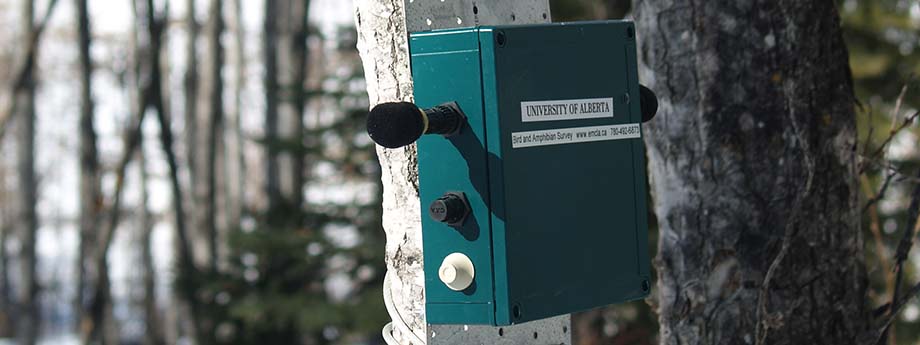Working Together to Better Protect Wildlife

Devon's operations in northern Alberta, Canada put us into close proximity with many species of wildlife, including rare species of birds, bats and amphibians. Before we start any project, we perform wildlife surveys to develop a baseline of information so we can reclaim the area after the project concludes. These surveys can be very time-consuming, skill-intensive and put people in safety-sensitive situations in remote, northern areas that are difficult to access. Imagine a single person, with no other people for miles, using a flashlight and a tape recorder to document hundreds of species at night.
In an effort to truly understand the area we work in, minimize disruptions to different species, and remove the safety risks for our people, Devon got together with the University of Alberta with the help of Canada’s Oil Sands Innovation Alliance (COSIA) and came up with a better way: voice recognition technology. We now use acoustic recording units (ARUs) in remote areas around the wetlands and boreal forests where Devon and other companies operate. Through new voice-recognition technologies (automatic recognizers – think “Siri”), these mobile microphones detect and identify animals calling in the forest, enabling researchers to observe almost twice as many animals as they would without them.
"The best science allows the best policy to be developed," commented Jeremy Reid, Devon biologist. "Our goal is to proactively manage our activities and ensure the safety of our employees and consultants."
The data collected helps us continually improve and provides regulators with more accurate data. The end goal in applying ARUs is to organize and house the data we collect in a central hub, to help companies work together to better protect wildlife and their habitat.
Published: February 2018
